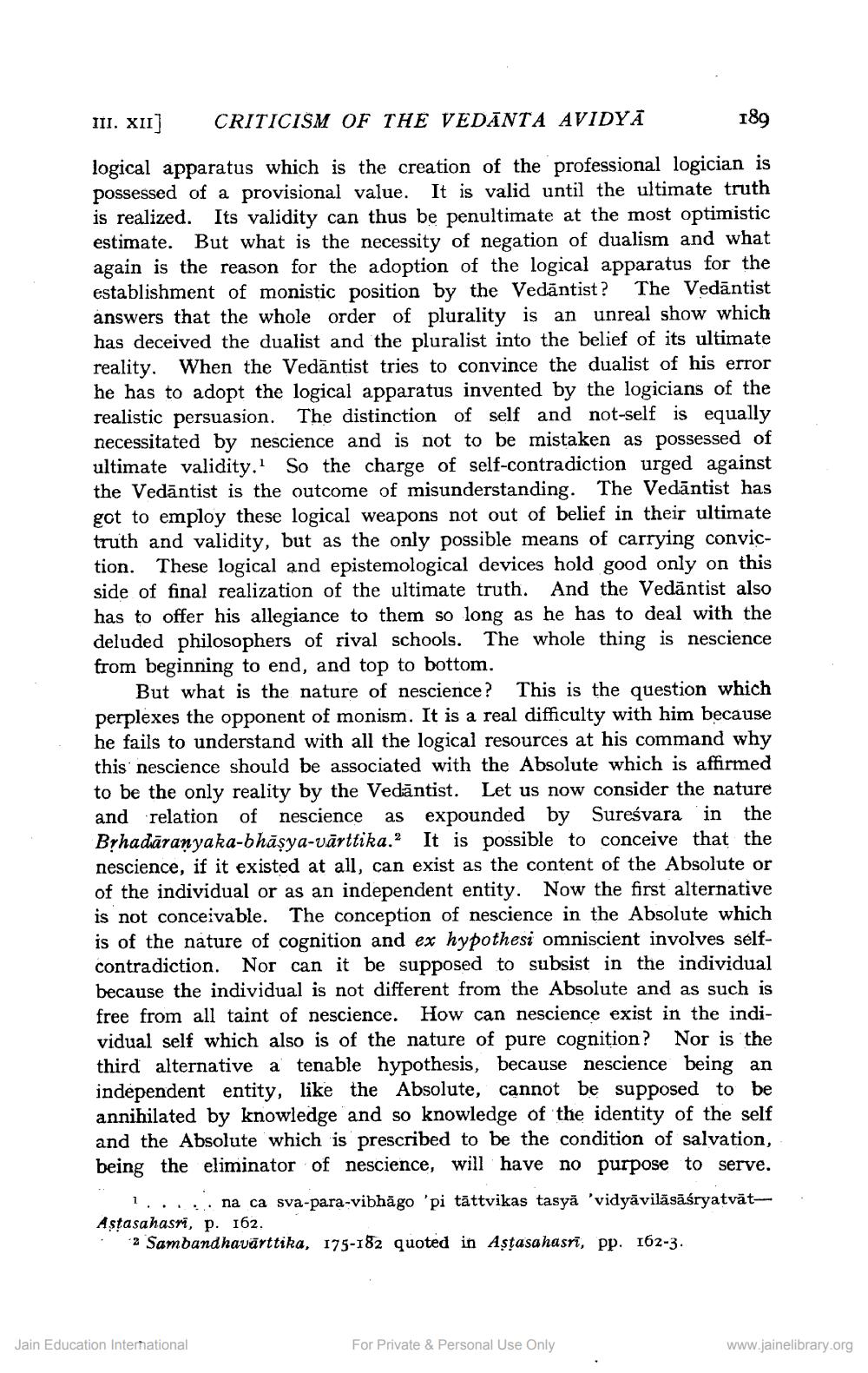________________
III. XII]
CRITICISM OF THE VEDANTA AVIDYA
189
logical apparatus which is the creation of the professional logician is possessed of a provisional value. It is valid until the ultimate truth is realized. Its validity can thus be penultimate at the most optimistic estimate. But what is the necessity of negation of dualism and what again is the reason for the adoption of the logical apparatus for the establishment of monistic position by the Vedāntist? The Vedāntist answers that the whole order of plurality is an unreal show which has deceived the dualist and the pluralist into the belief of its ultimate reality. When the Vedāntist tries to convince the dualist of his error he has to adopt the logical apparatus invented by the logicians of the realistic persuasion. The distinction of self and not-self is equally necessitated by nescience and is not to be mistaken as possessed of ultimate validity. So the charge of self-contradiction urged against the Vedāntist is the outcome of misunderstanding. The Vedāntist has got to employ these logical weapons not out of belief in their ultimate truth and validity, but as the only possible means of carrying conviction. These logical and epistemological devices hold good only on this side of final realization of the ultimate truth. And the Vedāntist also has to offer his allegiance to them so long as he has to deal with the deluded philosophers of rival schools. The whole thing is nescience from beginning to end, and top to bottom.
But what is the nature of nescience? This is the question which perplexes the opponent of monism. It is a real difficulty with him because he fails to understand with all the logical resources at his command why this nescience should be associated with the Absolute which is affirmed to be the only reality by the Vedāntist. Let us now consider the nature and relation of nescience as expounded by Sureśvara in the Bịhadiāranyaka-bhāşya-vārttika. It is possible to conceive that the nescience, if it existed at all, can exist as the content of the Absolute or of the individual or as an independent entity. Now the first alternative is not conceivable. The conception of nescience in the Absolute which is of the nature of cognition and ex hypothesi omniscient involves selfcontradiction. Nor can it be supposed to subsist in the individual because the individual is not different from the Absolute and as such is free from all taint of nescience. How can nescience exist in the individual self which also is of the nature of pure cognition? Nor is the third alternative a tenable hypothesis, because nescience being an independent entity, like the Absolute, cannot be supposed to be annihilated by knowledge and so knowledge of the identity of the self and the Absolute which is prescribed to be the condition of salvation, being the eliminator of nescience, will have no purpose to serve.
1.... na ca sva-para-vibhāgo 'pi tāttvikas tasyā 'vidyāvilāsāśryatvātAstasahasri, p. 162.
2 Sambandhavürttika, 175-182 quoted in Astasahasri, pp. 162-3.
Jain Education International
For Private & Personal Use Only
www.jainelibrary.org




